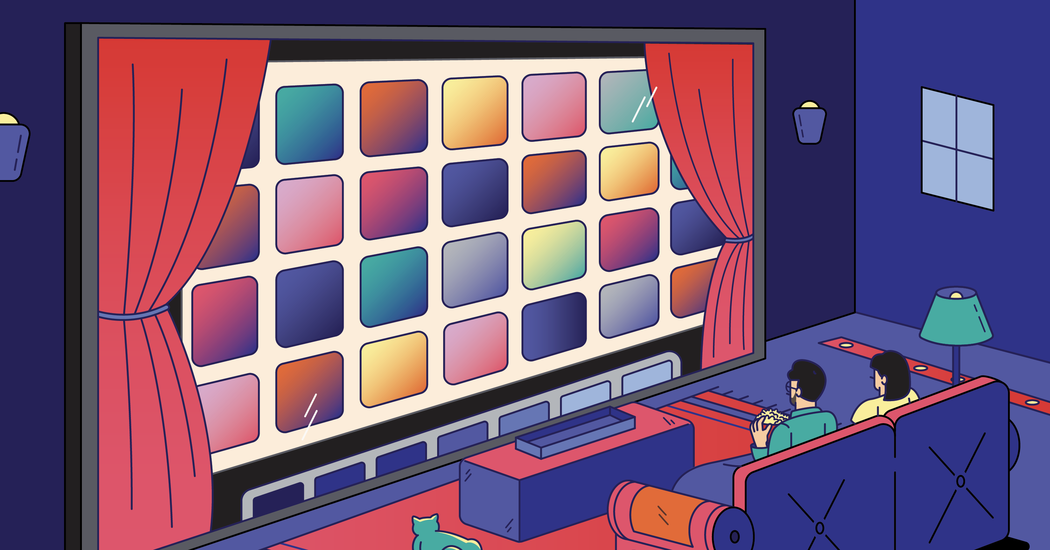In 2020, at the height of the pandemic, Universal Pictures and its arthouse sibling Focus Features set alarm bells ringing in Hollywood by ending the long-held practice of giving theaters an exclusive window of about 90 days to run new movies . Instead, their films, which have since included “Jurassic World: Dominion,” “Belfast,” “Cocaine Bear,” and “M3gan,” would be available for digital rental or purchase after just 17 days — at a higher price. .
For a change-phobic industry that still sees the introduction of armrest cup holders as a major innovation in 1981, the introduction of the service, known as premium video on demand, led to a lot of hand-wringing. Filmmakers and theater owners worried that ticket buyers would be less likely to leave their couches if they could watch the same movies on their TV or iPad a few weeks later.
Universal’s competitors mostly stuck with the status quo.
But Universal’s willingness to experiment — to challenge the “that’s how we’ve always done it” thinking — seems to be paying off. Universal has generated more than $1 billion in premium VOD revenue in less than three years, while ticket sales have barely dropped, if at all. In some cases, box office sales actually increased as movies became available at home, which Universal says is a side effect of premium VOD advertising and word of mouth.
For example, Universal made ‘Minions: The Rise of Gru’ available for premium VOD after 33 days in theaters in 2022. The film remained in theaters after that, selling more tickets than ‘Minions’, released in 2015, after 33 days. , according to data from Comscore, an analytics firm. Data for Universal’s “Jurassic World” and “Fast and Furious” franchises show a similar effect.
An interesting wrinkle: Donna Langley, the president of the Universal Filmed Entertainment Group, to which Focus Features belongs, said the company had seen only a small drop in revenue from traditional VOD. That service allows viewers to rent or buy movies at a lower price in theaters after 90 days. She said the premium offering was “a complementary, important new source of revenue that didn’t exist three years ago.”
In other words, Universal thinks it has, to some extent, found an entirely new customer.
“It’s had a hugely positive impact on our business,” Ms. Langley said, adding that without it, Universal probably would have had to make fewer films. Universal and Focus will release 26 films in theaters this year, more than any other Hollywood studio.
Universal charges a whopping $25 to rent a movie for 48 hours and $30 to buy it during the premium VOD sale period. Those prices could drop to $6 and $20 in the later, traditional sales window.
About 80 percent of premium VOD revenue goes to Universal, with sales platforms like iTunes and Google Play retaining most of the rest. (A small portion goes to theater chains like AMC Entertainment – bold to get them to agree to reduced exclusivity). Ticket sales are usually split 50-50 with theaters.
Revenue from premium VOD is small compared to box office sales. But it’s certainly not nothing.
“The Super Mario Bros. Movie” has generated more than $75 million in premium VOD revenue since May 16, according to Universal. “Jurassic World: Dominion”, “The Croods: A New Age” and “Sing 2” each grossed more than $50 million. Universal said 14 films, including “News of the World,” a historical drama starring Tom Hanks, and “M3gan,” each grossed more than $25 million.
Focus films, including ‘Belfast’ and ‘Mrs. Harris Goes to Paris’, each grossed approximately $5 million. For some art films, a theatrical release has become especially valuable as “a marketing tool” for premium VOD rentals and purchases, according to Julia Alexander, the director of strategy at Parrot Analytics, a research firm.
Much like DVD sales in the 1990s and 2000s, premium VOD has begun to provide a kind of financial safety net for missed checkouts. “Especially the Focus titles,” said Peter Levinsohn, director of distribution for the Universal Filmed Entertainment Group. “Those smaller movies aimed at older moviegoers have become dependent on it, I wouldn’t say, but they’ve benefited tremendously from it.”
It’s also about flexibility, Mr. Levinsohn said. The studio often decides that 17 days (three weekends) of theatrical exclusivity is enough. Sometimes, based on ticket sales, it allows longer. “The Super Mario Bros. Movie” ran exclusively in theaters for 41 days.
“We’ve also taken control of deciding when to make our content available in the home, based on the most optimal timing for an individual film,” said Mr. Levinsohn. NBCUniversal said in January that its studios’ revenues (both film and TV) are up 23 percent in 2022 to $11.6 billion from a year earlier.
Every studio has tried to find creative ways to maximize movie profits in a fast-paced industry. Part of Universal’s challenge is guessing what kind of impact premium VOD might have on streaming: if movies are sold or rented more widely before they arrive on a streaming service (in Universal’s case, on Peacock and Netflix) , will the films become less valuable? tools to encourage people to sign up for streaming services?
“The impact on streaming isn’t as big as people might have expected, but it’s still remarkable,” Ms Alexander said.

